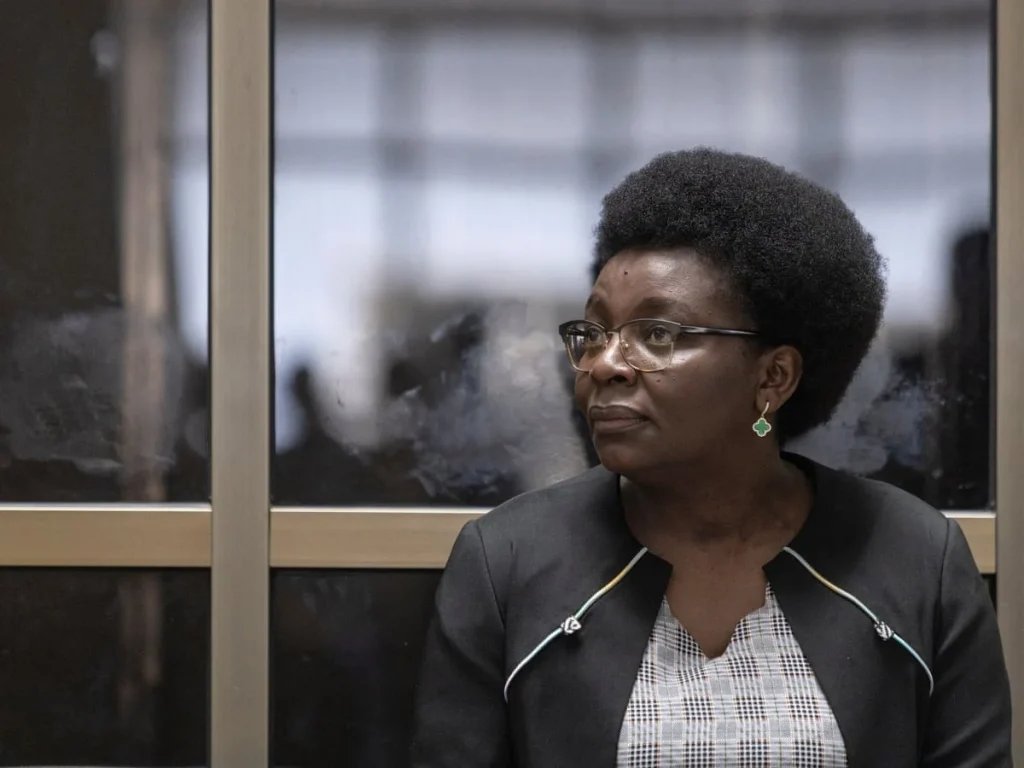Victoire Ingabire, a leading Rwandan opposition figure and outspoken critic of President Paul Kagame, was arrested in Kigali on Thursday, June 19, 2025.
The Rwanda Investigations Bureau (RIB) accuses her of inciting public disorder and forming a criminal organization.
Currently held in a detention facility in the capital, Ingabire awaits a court date, which has yet to be announced.
Her arrest has sparked widespread concern among human rights advocates and political observers.
As they view it as the latest move in Rwanda’s ongoing crackdown on dissent.
Ingabire’s detention underscores fears about shrinking political space in a country often praised for its post-genocide recovery but criticized for silencing opposition voices.
A Pattern of Persecution
This isn’t Ingabire’s first clash with Rwanda’s authorities.
In 2012, she was convicted of conspiring to form an armed group and minimizing the 1994 genocide, which claimed an estimated 800,000 lives, mostly Tutsis.
Sentenced to 15 years, she served six before receiving a presidential pardon in 2018.
The RIB’s latest charges allege she helped create a criminal organization and incited unrest, but the agency has provided no specific evidence.
Such vague accusations, analysts say, are a common tactic to target Kagame’s critics.
Ingabire leads DALFA-Umurinzi, an unregistered political party advocating for multiparty democracy and political reforms.
Her return from exile in the Netherlands in 2010 to run for president brought her global attention.
Barred from the election, she was soon arrested and charged with genocide denial—a label often used against government opponents.
Despite repeated setbacks, Ingabire remains a bold voice for change, making her a frequent target.
Kagame’s Rwanda: Progress vs. Repression
President Paul Kagame, in power since 2000, secured a landslide 99.18% of the vote in the 2024 election, according to Rwanda’s electoral commission.
His leadership has transformed Rwanda, earning praise for economic growth, low corruption, and turning Kigali into one of Africa’s cleanest, safest cities.
Post-genocide recovery has been remarkable, with infrastructure and stability drawing international admiration.
However, this progress comes at a cost. Human rights groups, including Amnesty International, accuse Kagame’s government of stifling media, jailing opponents, and manipulating the judiciary to silence dissent.
“Repression in Rwanda is subtle but systemic,” said an anonymous regional analyst.
“Figures like Ingabire face relentless pressure to stay quiet, especially ahead of political milestones.”
Global and Local Concerns
No court date has been set for Ingabire’s case, prompting calls from rights groups for a transparent legal process and access to independent counsel.
Her arrest follows a pattern of targeting opposition leaders, with some speculating it may be linked to a recent court case involving YouTuber Theoneste Nsengimana, though details remain unclear.
Observers warn that continued suppression could damage Rwanda’s image as a model of post-conflict success.
Social media, reflects growing alarm, with users calling Ingabire’s arrest politically motivated.
“This is about silencing dissent,” a netizen wrote, echoing broader concerns about Rwanda’s political climate.
What’s Next?
As Rwanda navigates its global reputation, Ingabire’s case could test its commitment to democratic principles. Will her arrest spark international action, or will it reinforce Rwanda’s grip on opposition voices? The world is watching, and the outcome may shape perceptions of Kagame’s legacy.




















